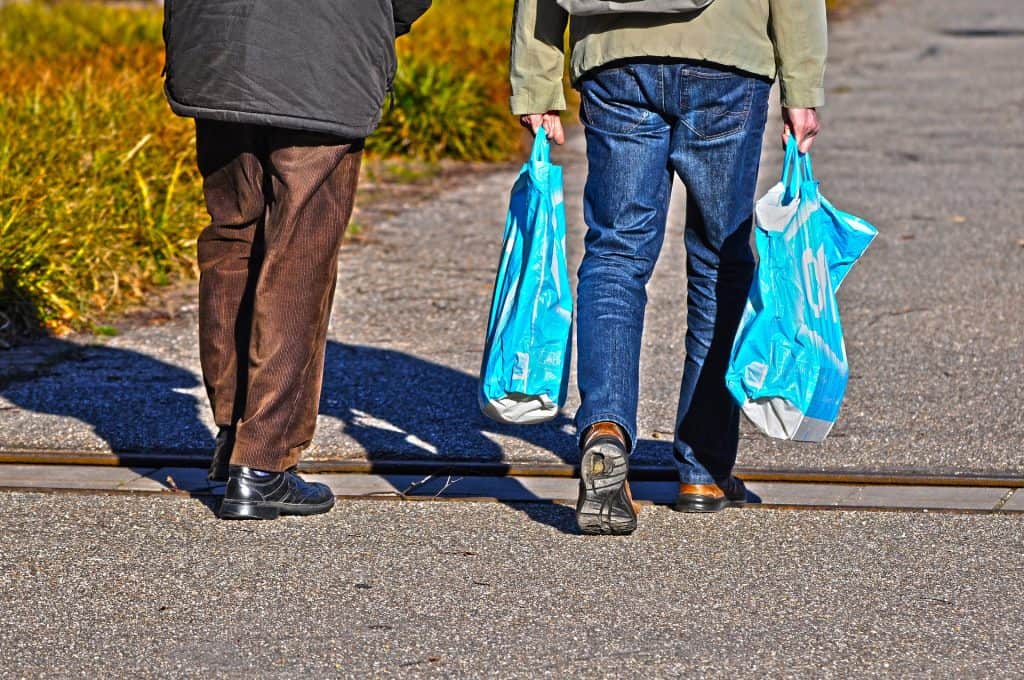
During the latest Harrison Township Committee meeting, members discussed their continued efforts to fix the town’s recycling contamination levels, even considering a plastic bag ban.
Plastic bags are not recyclable and, similar to many other municipalities, the township has been dealing with the financial impact of residents placing plastic bags in recycling carts. Over the past year, the town has tried reaching out to its residents through presentations at the local library and social media posts urging residents to leave plastic bags out of their recycling cans.
Deputy Administrator Dennis Chambers, who oversees public works for the township, introduced the possibility of a plastic bag ban during the meeting, inspired by other municipalities in the state. The inquiry caught Mayor Lou Manzo and other committee members by surprise.
“It’s kind of extreme, but a lot of shore towns are doing it,” Chambers added.
The ban would potentially be enforced at every business in town, forcing patrons to use either paper or reusable bags.
Since almost all of the contamination comes from plastic bags, the elimination of them from the recycling system would “drastically reduce” surcharge costs, according to the township.
“I think, at this point, it’s our last resort,” Chambers said.
The trouble with plastic bags, according to the township, is that they contaminate the single-stream recycling system, such as the one the township and many other municipalities in the state use, forcing recycling companies to add a hefty surcharge.
Over the last two months, the township averaged 60 to 70 loads of recycling. Every single one of those loads has been contaminated, according to Chambers. Even after the township made the transition last year to a cheaper contractor, the township is still spending between $1,200 to $1,500 a month on contaminated load charges, leaving the township to spend more than $14,000 in charges per year.
The committee also discussed alternate ways to fix the recycling problem instead of implementing the ban, such as adding stickers that provide information on what can and cannot be recycled on top of residents’ recycling bins. However, Chambers acknowledged to the committee the possibility that information on the stickers could become outdated from the ever-changing recycling requirements.
No decision was made during the meeting. The township’s Environmental Commission is responsible for working on a solution, which will then be brought to the committee for approval. Committeeman Adam Wingate, who serves as the liaison for the commission, stated it is currently working on a strategy to educate residents in an effort to decrease contamination by 20 to 30 percent. Environmental Commission meetings are held the first Wednesday of each month at 7:30 p.m. in the municipal building courtroom.
The next committee meeting is scheduled for Feb. 3 at 7 p.m. at the municipal building courtroom.









